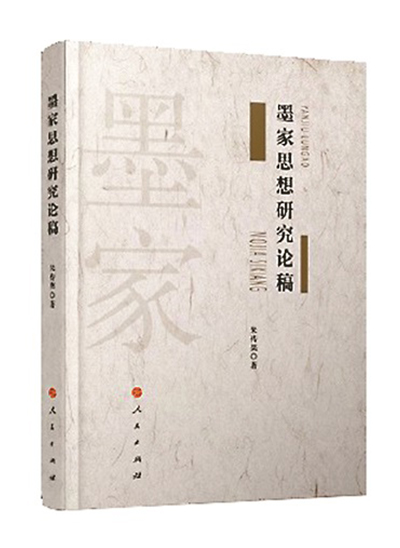Versatile Mohism deserves attention

A Study of Mohist Thought
A Study of Mohist Thought, written by Zhu Chuanqi, a professor from the School of Philosophy at Wuhan University, delves into Mozi (c. 470–c. 391 BCE) and Mohism, Mohist philosophy and its influence, Mohist social and political views and advocacy of political innovation, Mohist scientific and technological thought, and military thought.
Mozi was the first in the history of Chinese philosophy who opposed idealist transcendentalism with materialist empiricism. The basic traits of his philosophy were monistic materialism and simple dialectics. Mohism not only admits that the external world is an objective reality that exists apart from the subject, but also generalizes various objective realities as “things.” Mohist dialectic thoughts on order and disorder, nobility and baseness, and defensive and offensive war, are highly valuable in contrast with Confucianism. The materialist empiricism of Mohist epistemology centers on the “threefold test,” criteria proposed by Mozi that combine direct experience, indirect experience, and practical effect, as a framework to understand truth. It excludes apriorism which takes rational thinking or subjective perceptions as the test criterion.
In Zhu’s opinion, Mohism outweighs other schools in the pre-Qin era (prior to 221 BCE) in terms of influence on social reform and state governance. In the Mozi, the three chapters of the Shangxian (literally “exaltation of the virtuous”) section proposed establishing a political system benefiting all people, advocated abolishing the Zhou (1046-256 BCE) ritual system that maintained hereditary nobility, and called for a political system of civilian democracy that elevates the virtuous and the talented.
Mohist thought on social reform and state governance had a profound influence on peasant uprisings, social reform, and revolutionary movements in Chinese history. It played a part in promoting the rise of reform and revolutionary movements in the late Qing Dynasty (1644–1911). For example, Sun Yat-sen attached great importance to and advocated the study of Mohism during the Revolution of 1911.
Mozi advocated and supported just war. Concerning military wars, Mohist views of “universal love” and “opposition to aggression” were of progressive practical significance at the time. Its theory of non-attack was to safeguard the interests of the common people. In the article “Qihuan” of the Mozi, Mozi strongly condemned war launched by “warlike states,” accusing them of not only destroying the production and life of small states and bringing disasters to their people, but also bringing disasters to their own agricultural production and people’s life. Mozi’s division of war into fighting for justice or aggression is of progressive significance and reflects his dialectic thoughts.
Zhang Hao is a research fellow from the Institute of Philosophy at the Chinese Academy of Social Sciences.
Edited by YANG LANLAN

 PRINT
PRINT CLOSE
CLOSE